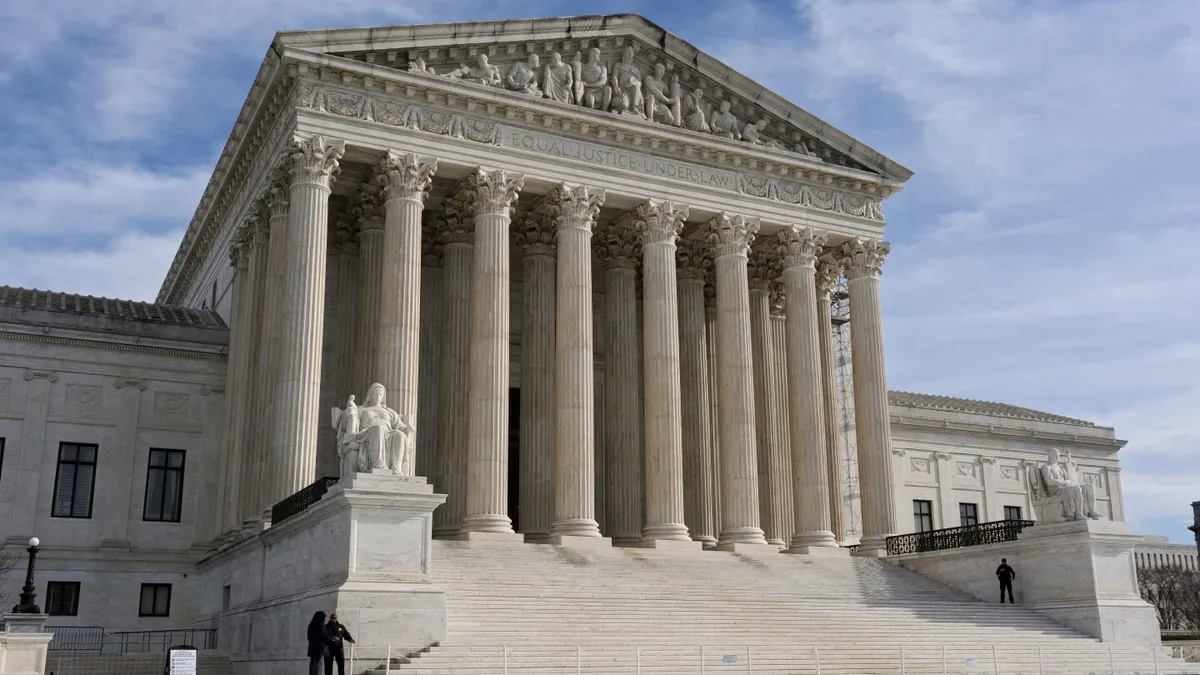
On Tuesday, the Supreme Court delivered a significant ruling that allows President Donald Trump to proceed with his controversial plans to downsize the federal workforce. This decision comes despite widespread concerns that vital government services may be compromised and that hundreds of thousands of federal employees could potentially lose their jobs. The justices have overridden lower court orders that had temporarily halted these cuts, which are primarily being spearheaded by the Department of Government Efficiency.
In an unsigned order, the Supreme Court clarified that no specific job cuts were presented before them, but rather an executive order from President Trump and a directive for federal agencies to carry out job reductions. Justice Ketanji Brown Jackson was the sole dissenting voice, expressing concerns about the potential ramifications of this ruling. She accused her fellow justices of showing a “demonstrated enthusiasm” for endorsing what she referred to as the President’s “legally dubious actions in an emergency posture.” Jackson emphasized that this executive action could lead to mass terminations, widespread cancellation of federal programs, and significant dismantling of government functions as established by Congress.
This ruling marks a continuation of what many view as a remarkable winning streak for President Trump, who has been given the green light to push forward with key components of his plan to restructure the federal government. The Supreme Court has intervened frequently in response to emergency appeals from the Justice Department, which argues that lower court rulings are improperly encroaching on presidential authority. President Trump has consistently stated that he believes voters have granted him a mandate to pursue these changes.
In a statement following the ruling, White House spokesperson Harrison Fields hailed it as a "definitive victory" for the President, criticizing what he described as ongoing attempts by “leftist judges” to undermine the President’s constitutionally authorized executive powers. Fields asserted that this ruling would enable the administration to achieve greater government efficiency across the federal landscape.
The consequences of this decision are already being felt, with tens of thousands of federal workers having either been fired, taken deferred resignations, or placed on leave. While there is no official tally of job cuts, reports indicate that at least 75,000 federal employees have opted for deferred resignations, and numerous probationary workers have been let go. In May, U.S. District Judge Susan Illston ruled that substantial reductions to the federal workforce would require congressional approval, a decision upheld by a 2-1 vote from the U.S. 9th Circuit Court of Appeals.
Labor unions and nonprofit organizations that challenged the downsizing have provided the Supreme Court with several examples illustrating the potential adverse effects of these cuts, including reductions of 40% to 50% at various agencies. Major cities like Baltimore, Chicago, and San Francisco have joined in legal action against the federal downsizing efforts.
In a joint statement, the groups that filed the lawsuit expressed their dismay over the Supreme Court’s decision, stating, “Today’s decision has dealt a serious blow to our democracy and puts services that the American people rely on in grave jeopardy.” They reiterated that reorganizing government functions and laying off federal workers en masse without congressional approval is unconstitutional.
The Supreme Court’s ruling impacts several federal agencies, including the Department of Agriculture, Department of Energy, Department of Labor, Department of the Interior, Department of State, Department of the Treasury, and Department of Veterans Affairs. Additionally, the National Science Foundation, Small Business Administration, Social Security Administration, and Environmental Protection Agency are also affected by this controversial executive order.
The legal battle continues in Judge Illston’s court, as the future of the federal workforce hangs in the balance amidst these ongoing disputes.